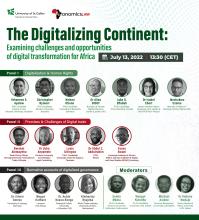The African Continental Free Trade Area Rules of Origin Manual (July 2022)
According to Article 42.2 of the Annex 2 on Rules of Origin, Manual shall, upon his adoption by the Assembly, form an integral part of Annex 2. It will therefore have to be used in conjunction with AfCFTA legal instruments.
